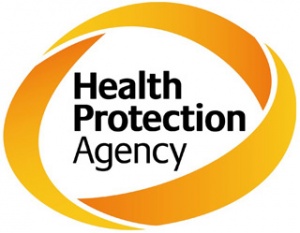HPA urges fans to give infections the red card during the world cup

With the football World Cup fast approaching, the sexual health and travel health experts at the Health Protection Agency (HPA) want to remind all travellers to heed safe sex advice and follow good travel health advice to avoid getting sick in South Africa.
Following safe sex advice is essential when at home and abroad, but its importance is highlighted when travelling to areas where infection rates are higher than in the UK. Figures from the World Health Organization show that prevalence of HIV in South Africa remains high, with around 20 percent of South African adults between the ages of 15 and 49 infected.*
Dr. Valerie Delpech, a consultant epidemiologist and head of the HIV section at the HPA, said:
“There are many parts of the world that have a much higher prevalence of HIV than in the UK. We know that the group most vulnerable and at risk of infection with HIV in developing countries, including South Africa, are women, who may be involved in the sex industry.
“Ensuring you always practise safe sex, by using a condom, will significantly reduce the risk of contracting HIV or another sexually transmitted infection while in South Africa.”
ADVERTISEMENT
Travellers to South Africa should also be aware that cases of a flu-like illness called Rift Valley Fever, which can be transmitted to humans via mosquito bites, have been reported in South Africa. The risk of travellers catching this infection is low, but measures should still be taken to avoid being bitten. Malaria is not a risk for travellers to the host cities, but travellers intending to combine their trip with a safari, or with a visit to malaria risk regions in South Africa or other African countries, need to take appropriate malaria prevention measures before and during their travel.
Dr Jane Jones, head of the HPA’s travel and migrant health section, said,
“Travellers to the World Cup are unlikely to catch an infection from mosquito bites, but it’s always sensible when travelling to a hot or humid climate to pack a strong insect repellent, for example one that contains a chemical called DEET, and to make sure it is applied frequently.”
“Rabies is also a risk in South Africa so travellers should avoid contact with animals and ensure that, if they get bitten, licked or scratched by an animal, they seek medical assistance as soon as possible.”
“It’s important for people going to the World Cup to discuss their particular travel health requirements with their GP or travel clinic to ensure they are adequately protected, including being up to date with routine vaccinations, as well as any additional ones that may be appropriate. It’s also important to ensure adequate travel health insurance is taken out as well.”
Dr Jones added “The most commonly reported travel associated infection is travellers diarrhoea and travellers to South Africa should therefore be mindful of food hygiene and to ensure that caution is exercised when choosing where and what to eat. The easiest way to protect yourself from stomach bugs is to always wash your hands before eating and after going to the toilet, and to remember the phrase ‘Boil it, cook it, peel it or forget it!’. Just a little thought and some sensible practices could avoid any unpleasant illnesses which could ruin your World Cup experience.”

